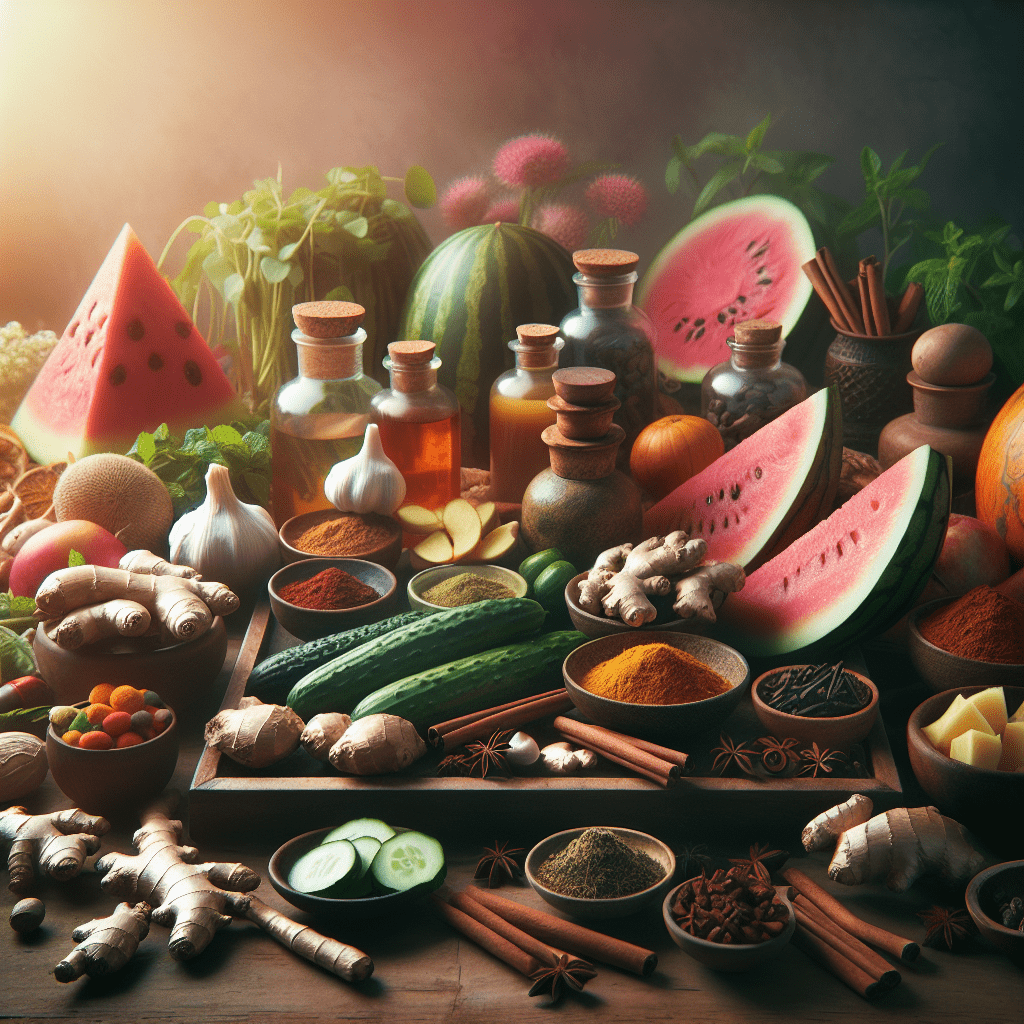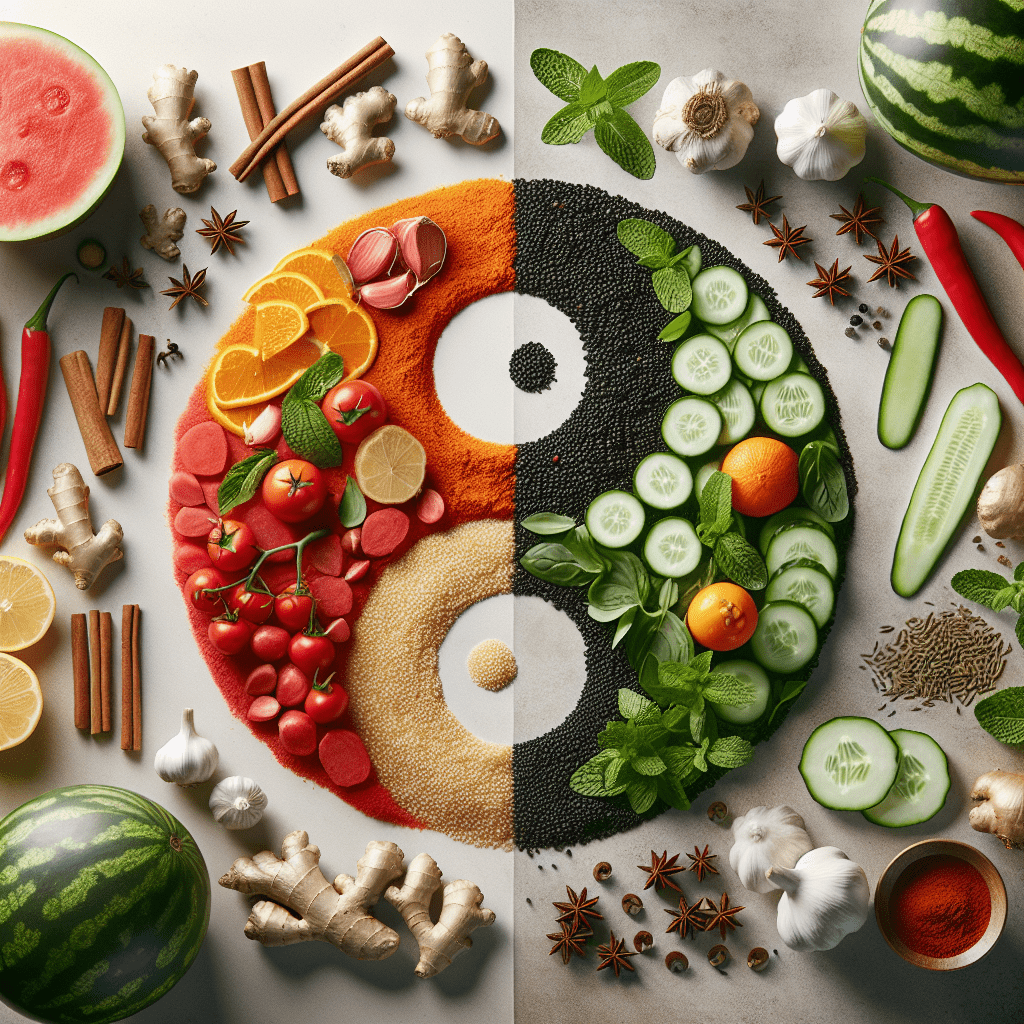Discover why your latest diet failed and how Eastern medicine’s timeless nutrition principles could transform your health.
Have you ever wondered why that trendy diet you tried last month left you feeling tired and bloated instead of energized and healthy? You’re not alone. While modern nutrition focuses on counting calories and tracking macros, there’s a 2,000-year-old approach that sees food in a completely different light.
Eastern medicine nutrition isn’t just another diet trend—it’s a holistic philosophy that views food as medicine and eating as an art form. This ancient wisdom sees your body as a complex ecosystem where everything is connected, rather than a machine with separate parts that need specific fuel.
In today’s world of contradictory health advice and quick-fix diet solutions, these ancient secrets offer something different: a sustainable, personalized approach to nourishing your body that modern diets simply can’t match. Let’s explore the seven timeless principles that could transform your relationship with food forever.
The Holistic Approach: Food as Medicine, Not Just Fuel
While Western nutrition breaks food down into proteins, carbs, and fats, nutrition eastern medicine sees your meal as a healing opportunity. Traditional Chinese Medicine (TCM) doesn’t separate food from medicine—they’re considered one and the same.
“Food is not just fuel—it’s medicine!” as the ancient saying goes. This perspective sees each meal as a chance to restore balance in your body, prevent illness, and promote longevity.
Modern diets focus on isolated nutrients and calorie counting, but they miss the bigger picture. When you follow the latest diet trend without considering your unique needs, constitution, and environment, you’re setting yourself up for disappointment. The one-size-fits-all approach of modern diets simply can’t address the complexity of your individual body.
Balance Through Yin and Yang: The Foundation of Eastern Nutrition
At the core of nutrition eastern medicine lies the concept of Yin and Yang—complementary energies that must remain in balance for optimal health.
Imagine Yin as cooling, moistening, and calming, while Yang is warming, drying, and energizing. Every food has its own Yin or Yang properties, which directly impact your body’s harmony.
Too many cold salads and raw foods (Yin) might leave you feeling bloated and lethargic, especially in winter. Conversely, too many spicy, grilled foods (Yang) could lead to inflammation and restlessness, particularly in summer.
The Five Elements theory expands on this balance, connecting foods to the elements of Wood, Fire, Earth, Metal, and Water. Each element corresponds to specific organs and emotions:
- Wood (sour foods like lemons) supports your liver
- Fire (bitter foods like coffee) influences your heart
- Earth (sweet foods like rice) nurtures your stomach and spleen
- Metal (pungent foods like onions) benefits your lungs
- Water (salty foods like seaweed) strengthens your kidneys
By understanding these connections, you can choose foods that support specific organ systems based on your health needs. For example, if you’re feeling anxious (a heart imbalance), bitter foods like dark leafy greens might help restore calm.
Unlike rigid modern diets that eliminate entire food groups, this approach encourages variety and balance, adapting to your changing needs throughout life’s seasons.
Food Energetics: The Hidden Quality Modern Diets Ignore
One of the most overlooked aspects of nutrition in modern diets is food energetics—the heating or cooling effect foods have on your body regardless of their physical temperature.
This isn’t about whether a food is hot or cold when served, but about its intrinsic energy and how it affects you after consumption. Some foods warm your body from within, while others cool it down.
Heating foods include:
- Ginger, garlic, and onions
- Spicy peppers and most spices
- Beef and lamb
- Mangoes and cherries
Cooling foods include:
- Cucumber, spinach, and broccoli
- Watermelon and bananas
- Duck and rabbit
- White fish like cod
Understanding food energetics allows you to tailor your diet to your constitution and current health conditions. Feeling feverish or experiencing skin breakouts? Cooling foods can help reduce that internal heat. Battling cold hands and feet or slow digestion? Warming foods can stoke your internal fire.
A real-life example: Many people experience bloating after eating raw salads (cooling foods). Eastern nutrition would explain that these foods dampen your digestive fire, especially if you already have a “cold” constitution. Lightly cooking those vegetables and adding warming spices like ginger could dramatically improve digestion.
Modern nutrition research is catching up to this ancient wisdom. Studies now confirm that certain foods have thermogenic (heat-producing) effects, while others can indeed cool inflammation in the body. Research from institutions like NYU is increasingly validating these traditional approaches.
Mindful Eating: The Lost Art of Nourishment
When was the last time you ate without scrolling through your phone or watching TV? Eastern medicine places enormous importance on how you eat, not just what you eat.
According to nutrition eastern medicine, eating slowly and mindfully isn’t just about enjoyment—it’s essential for proper digestion. Your digestive system works best when you’re relaxed and focused on your food.
Here are some mindful eating practices that could transform your digestion:
1. Sit down for meals and take a moment to appreciate your food before eating
2. Chew thoroughly (at least 20-30 times per bite)
3. Avoid ice-cold beverages with meals, which can “extinguish” digestive fire
4. Choose warm, cooked foods over raw, especially if digestion is weak
5. Eat until you’re about 70-80% full, not stuffed
Modern research supports these ancient practices. Studies show that mindful eating can improve digestion, reduce overeating, and enhance nutrient absorption. Despite this evidence, modern diets rarely address these crucial habits.
Another key difference: Eastern nutrition strongly favors freshly cooked meals over processed foods or leftovers. Fresh food is believed to contain more “qi” or vital energy that nourishes your body on a deeper level than just providing vitamins and minerals.
Personalized Nutrition: Your Constitution Matters
Have you ever noticed how one friend thrives on a vegetarian diet while another needs meat to feel energized? Eastern medicine explains this through constitutional types.
Unlike the one-size-fits-all approach of many modern diets, nutrition eastern medicine recognizes that each person has unique needs based on their constitutional type, current health status, age, climate, and season.
In TCM, practitioners identify your dominant elements through pulse, tongue diagnosis, and assessment of symptoms to create truly personalized dietary recommendations. Someone with signs of “heat” might be advised to eat cooling foods, while someone showing “dampness” might be encouraged to avoid dairy and raw foods.
This personalization extends to your environment as well:
- In cold climates: Emphasize warming foods
- In hot climates: Choose more cooling options
- During winter: Include more cooked, substantial foods
- During summer: Incorporate lighter, cooling choices
This adaptability is something rigid modern diet plans rarely consider. How often have you seen a diet program adjust its recommendations based on whether you live in Minnesota or Florida, or whether it’s January or July?
The Rhythm of Eating: Timing Matters
When you eat is just as important as what you eat in eastern medicine nutrition. Your body follows natural cycles aligned with the time of day, and eating in harmony with these rhythms supports optimal health.
According to TCM:
- Breakfast should be warm and nourishing (7-9 AM when Stomach energy is strongest)
- Lunch should be your largest meal (11 AM-1 PM when digestive fire is at its peak)
- Dinner should be lighter and earlier (5-7 PM as digestion begins to slow down)
This contrasts sharply with modern Western habits, where many people skip breakfast, grab a quick lunch, and eat their largest meal late in the evening when the body is preparing for rest.
Eastern medicine also recognizes the importance of seasonal eating—consuming what’s locally available during each season. This natural rhythm keeps you in harmony with your environment and ensures greater nutritional diversity throughout the year.
“Eating with the seasons isn’t just sustainable for the planet—it’s what your body is designed to do,” explains many TCM practitioners. Spring foods like young greens help cleanse winter stagnation, while autumn’s root vegetables prepare your body for the cold months ahead.
Food Combinations: Harmony on Your Plate
The final secret that modern diets often miss is the art of food combining. Eastern nutrition pays careful attention to which foods work well together and which combinations might disrupt digestion.
Some traditional wisdom about food combining includes:
- Avoiding fruit with meals (eat 30 minutes before or 1 hour after)
- Not mixing too many different proteins in one meal
- Balancing flavors and energetics on your plate
- Including all five flavors (sweet, sour, bitter, pungent, salty) regularly for complete nourishment
These principles aim to make digestion as efficient as possible, allowing your body to extract maximum nutrition with minimum energy expenditure.
Embracing Ancient Wisdom in Modern Life
These seven ancient secrets reveal why modern diets often fail to deliver lasting results—they simply don’t address the holistic nature of nutrition and its relationship to your unique body, environment, and lifestyle.
Eastern medicine nutrition offers a more complete approach that treats food as medicine and eating as an art. By understanding these principles, you can begin to develop a more intuitive, personalized relationship with food that supports true wellbeing.
At HerbalsZen, we believe in bridging ancient wisdom with modern knowledge. Our EASTCHI AI platform integrates these time-tested principles with cutting-edge technology to provide truly personalized nutrition guidance based on your constitutional type, current health status, and environment.
Instead of following the next trendy diet, consider exploring the holistic approach of nutrition eastern medicine—a system that has supported health and longevity for thousands of years. Your body already knows what it needs; these ancient secrets simply help you listen more carefully to its wisdom.
Remember, true nourishment isn’t just about nutrients—it’s about harmony, balance, and a mindful relationship with everything you consume. That’s a lesson modern diets are still struggling to learn.




